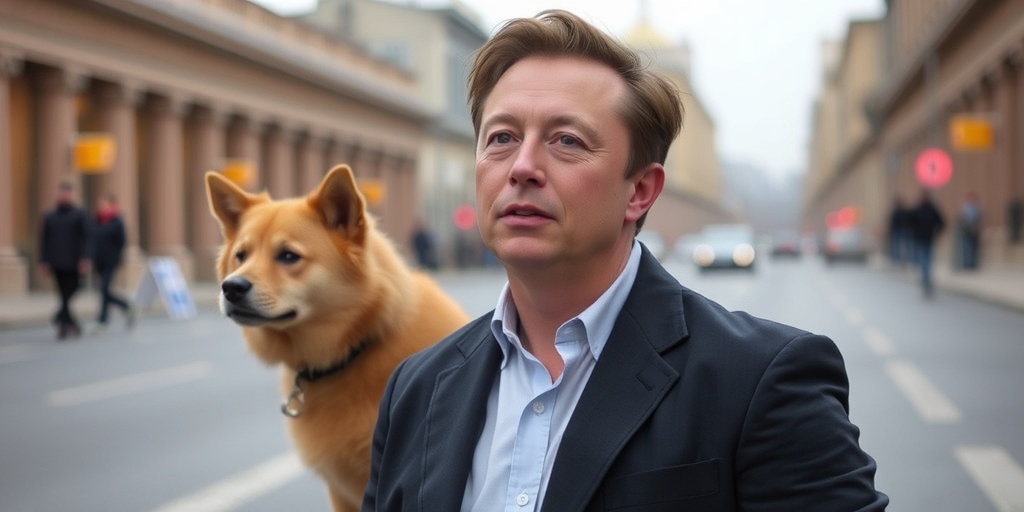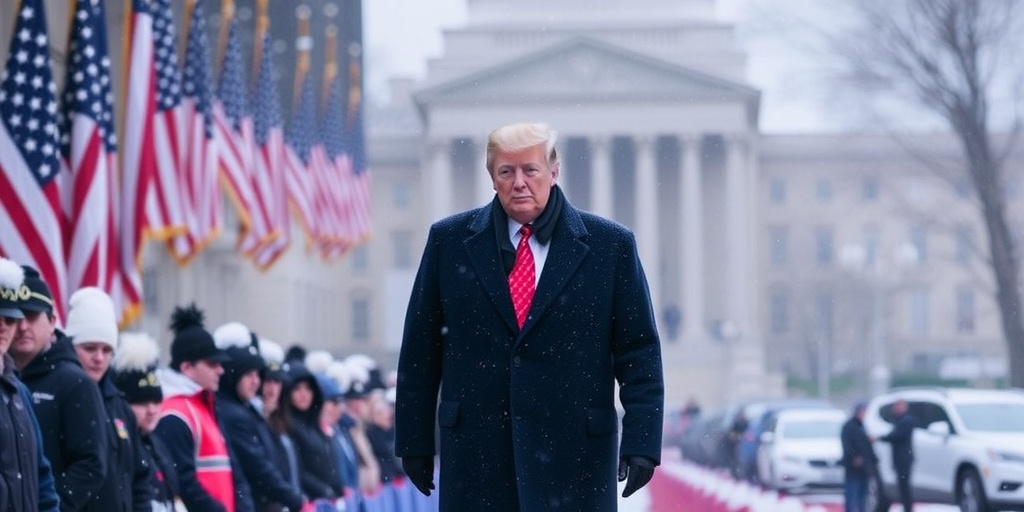Now Reading: Elon Musk’s Strategy to Cut Government Costs with DOGE
-
01
Elon Musk’s Strategy to Cut Government Costs with DOGE
Elon Musk’s Strategy to Cut Government Costs with DOGE

Unpaid Billionaires and Tech Executives Set to Join U.S. Government for Cost-Cutting Initiative
An unconventional coalition of billionaires, technology executives, and close associates of Republican donor Peter Thiel is poised to unofficially integrate into the U.S. government, leveraging their expertise in a quest to streamline operations and eradicate perceived wastefulness in federal spending. As President-elect Donald J. Trump prepares to establish his highly anticipated “Department of Government Efficiency” (DOGE), the initiative is gaining momentum with the involvement of high-profile figures including Elon Musk and Vivek Ramaswamy.
With Inauguration Day approaching, DOGE is gearing up to place representatives in various federal agencies. The aim is for most major government entities to host two DOGE representatives who will help identify cost-cutting opportunities akin to the drastic measures Musk implemented at his social media platform, X. This innovative approach, although informal and unpaid, signals a bold shift in how talent could be leveraged to reform government expenditure.
This information stems from interviews with several insiders familiar with DOGE’s strategy, who spoke on the condition of anonymity due to the sensitive nature of the discussions. The inner workings of DOGE remain fluid and secretive, with communication heavily reliant on Signal, an encrypted messaging application. This emphasis on discretion reflects the group’s desire to avoid public scrutiny as they prepare for an ambitious foray into public service.
Trump has dubbed DOGE a vehicle for “drastic change,” insisting that its mission is to deliver external guidance on reducing wasteful government spending. However, the organization lacks direct authority over budget cuts, which resides with Congress. Instead, DOGE is tasked with providing recommendations for spending reductions in various programs and initiatives.
As the structure of DOGE continues to take shape, many of the executives involved plan to commit to six-month voluntary roles within the federal system before returning to their lucrative positions in the private sector. Musk has clarified that participants will not receive any compensation for their efforts— a stipulation that has previously deterred some tech executives from joining— and they are expected to invest considerable time, reportedly operating on 80-hour workweeks. Some of these participants may also be classified as “special government employees,” permitting them to serve temporarily for a limited number of days within a year.
DOGE representatives will primarily focus on specific agencies where they can leverage their respective expertise, but there has also been talk of establishing collaborations within the Executive Office of the President and the Office of Management and Budget. While some insiders speculate about the creation of a think tank beyond government walls, the current consensus leans toward DOGE serving as a brand— a network of enthusiastic leaders bound by loyalty to Musk and Ramaswamy rather than a formal entity.
Trevor Traina, an entrepreneur with past ties to the Trump administration, articulated a dual perspective on DOGE’s operations: it could be seen as either an idealistic venture by wealthy individuals or as a necessary service to the nation reminiscent of early American governance. Traina highlighted the dedication of his peers, noting their willingness to put personal and family commitments aside in a quest to effect meaningful change.
Among the key individuals driving DOGE’s mission are health care entrepreneur Brad Smith, who has been instrumental in recruitment, and Steve Davis, a longtime collaborator of Musk. They have been reaching out to experts to gather insights on federal budget matters while curating a team of capable recruits to deploy across the agencies.
The selection process for DOGE recruits has notably emphasized personal connections and recommendations, with influential investors and industry experts—many of whom hail from the Thiel Fellowship—playing essential roles in identifying candidates. This blend of talent underscores a reliance on networks that young entrepreneurs often establish while navigating pathways in the tech industry.
However, despite the fervor surrounding DOGE, skepticism persists among budget analysts regarding the feasibility of its lofty goals. Musk previously suggested that the initiative could generate savings as high as $2 trillion from the government’s substantial $6.75 trillion budget. Yet, experts caution that achieving this target would necessitate severe reductions in popular programs, a concession to which Trump has publicly committed not to yield.
With the stakes considerable and opinions divided, both Musk and Ramaswamy find themselves shifting the narrative surrounding DOGE’s potential success metrics. Ramaswamy has advocated for deregulation as a means of stimulating economic growth, asserting that immediate budget reductions are not the sole measure of DOGE’s impact.
In the face of ongoing scrutiny, Musk recently modified his projections of anticipated savings, acknowledging that if the group aimed for $2 trillion, a more likely yield might be around $1 trillion. As the organization continues to evolve, both supporters and skeptics will closely monitor the effectiveness of DOGE’s untraditional approach to government reform.
Stay Informed With the Latest & Most Important News
Previous Post
Next Post
-
 01New technology breakthrough has everyone talking right now
01New technology breakthrough has everyone talking right now -
 02Unbelievable life hack everyone needs to try today
02Unbelievable life hack everyone needs to try today -
 03Fascinating discovery found buried deep beneath the ocean
03Fascinating discovery found buried deep beneath the ocean -
 04Man invents genius device that solves everyday problems
04Man invents genius device that solves everyday problems -
 05Shocking discovery that changes what we know forever
05Shocking discovery that changes what we know forever -
 06Internet goes wild over celebrity’s unexpected fashion choice
06Internet goes wild over celebrity’s unexpected fashion choice -
 07Rare animal sighting stuns scientists and wildlife lovers
07Rare animal sighting stuns scientists and wildlife lovers



















